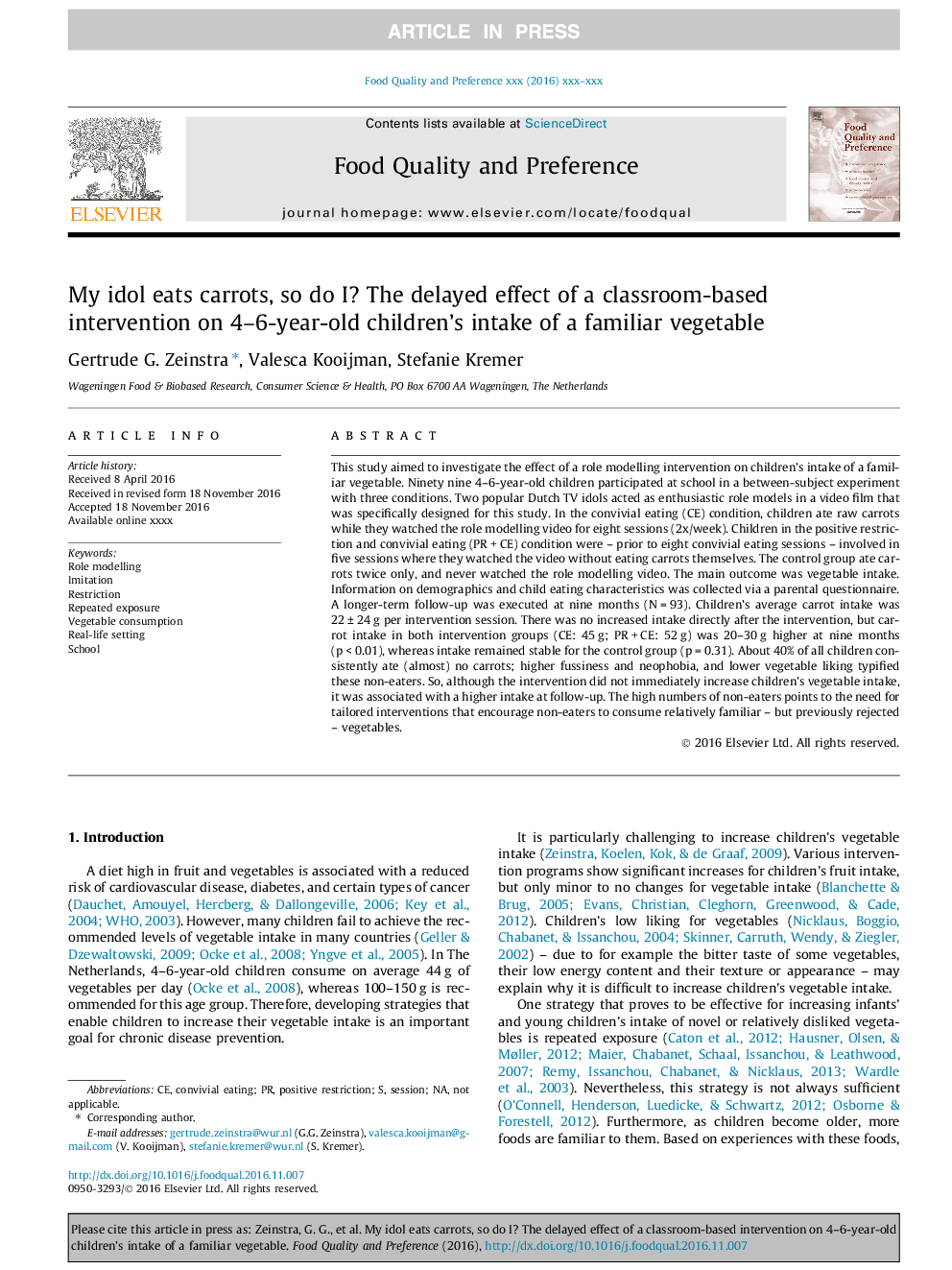| کد مقاله | کد نشریه | سال انتشار | مقاله انگلیسی | نسخه تمام متن |
|---|---|---|---|---|
| 5736037 | 1613138 | 2017 | 8 صفحه PDF | دانلود رایگان |
عنوان انگلیسی مقاله ISI
My idol eats carrots, so do I? The delayed effect of a classroom-based intervention on 4-6-year-old children's intake of a familiar vegetable
ترجمه فارسی عنوان
بت من هویج می خورد، پس من؟ تأثیر تاخیر مداخله مبتنی بر کلاس درس بر مصرف کودکان 4 تا 6 ساله یک سبزی آشنا
دانلود مقاله + سفارش ترجمه
دانلود مقاله ISI انگلیسی
رایگان برای ایرانیان
کلمات کلیدی
موضوعات مرتبط
علوم زیستی و بیوفناوری
علوم کشاورزی و بیولوژیک
دانش تغذیه
چکیده انگلیسی
This study aimed to investigate the effect of a role modelling intervention on children's intake of a familiar vegetable. Ninety nine 4-6-year-old children participated at school in a between-subject experiment with three conditions. Two popular Dutch TV idols acted as enthusiastic role models in a video film that was specifically designed for this study. In the convivial eating (CE) condition, children ate raw carrots while they watched the role modelling video for eight sessions (2x/week). Children in the positive restriction and convivial eating (PR + CE) condition were - prior to eight convivial eating sessions - involved in five sessions where they watched the video without eating carrots themselves. The control group ate carrots twice only, and never watched the role modelling video. The main outcome was vegetable intake. Information on demographics and child eating characteristics was collected via a parental questionnaire. A longer-term follow-up was executed at nine months (N = 93). Children's average carrot intake was 22 ± 24 g per intervention session. There was no increased intake directly after the intervention, but carrot intake in both intervention groups (CE: 45 g; PR + CE: 52 g) was 20-30 g higher at nine months (p < 0.01), whereas intake remained stable for the control group (p = 0.31). About 40% of all children consistently ate (almost) no carrots; higher fussiness and neophobia, and lower vegetable liking typified these non-eaters. So, although the intervention did not immediately increase children's vegetable intake, it was associated with a higher intake at follow-up. The high numbers of non-eaters points to the need for tailored interventions that encourage non-eaters to consume relatively familiar - but previously rejected - vegetables.
ناشر
Database: Elsevier - ScienceDirect (ساینس دایرکت)
Journal: Food Quality and Preference - Volume 62, December 2017, Pages 352-359
Journal: Food Quality and Preference - Volume 62, December 2017, Pages 352-359
نویسندگان
Gertrude G. Zeinstra, Valesca Kooijman, Stefanie Kremer,
